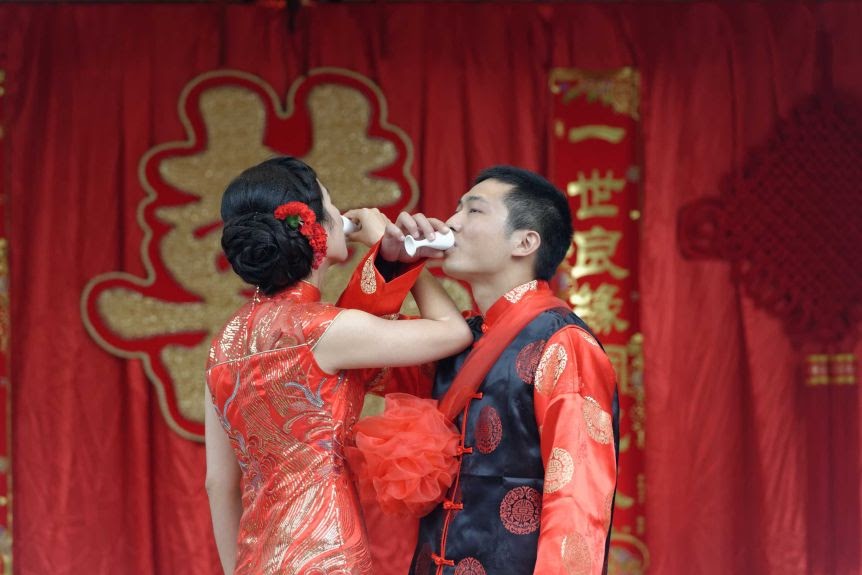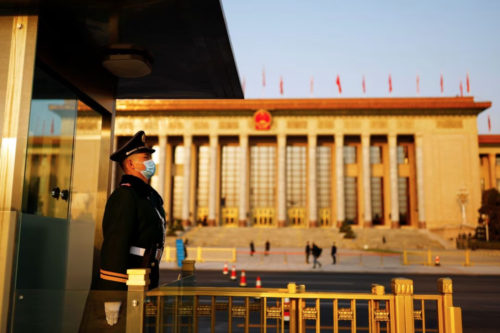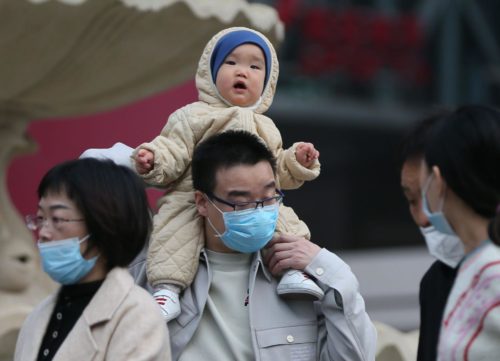China aims to make marriage registration more ‘solemn’ and ‘formal’
In its latest attempt to impose a moral view on marriage and family values, China has released a host of new guidance on how to improve marriage registration for Chinese couples, primarily by making the issue of marriage certificates more “solemn” and “memorable.”

In its latest attempt to impose a moral view on marriage and family values, China has released a host of new guidance on how to improve marriage registration for Chinese couples, primarily by making the issue of marriage certificates more “solemn” and “memorable.”
Titled “Guidelines on how to Strengthen Counseling and Education on Marriage and Family in a New Era,” the directive (in Chinese) was jointly issued by the Chinese Ministry of Civil Affairs and the All-China Women’s Federation on September 8.
Citing a string of objectives that the initiative strives to achieve, such as “the inheritance of excellent culture of Chinese families” and “effectively developing people’s ability to form happy marriages,” the document noted that the legal aspect of getting married, namely obtaining marriage certificates at civil affairs bureaus, should be treated with more seriousness and consideration by couples.
The guideline suggested several ways to “increase the solemnity of marriage registration,” such as encouraging couples to exchange customized vows before their marriage is announced and letting them invite family members or friends as witnesses.
In addition to potential improvements on issuing marriage certificates, the guideline also urged local governments to develop premarital counseling services, helping couples to make adequate preparations for the life-changing decision and preventing marriage disputes “from the first place.”
Traditionally speaking, unlike civil marriages in Western countries, the process of obtaining marriage certificates in China is entirely administrative. For Chinese couples seeking to have their partnership legally recognized, all they have to do is to submit their applications and relevant documents in-person at a local civil affairs office. No witness is required and there’s no ceremony.
In the past decade, China has seen a steady decline in marriages as young adults have increasingly come to see marriage as a restriction on their freedom, a barrier to their professional advancement or simply an obsolete concept. According to a report released by the Chinese Ministry of Civil Affairs, the country’s marriage rate hit an 11-year low in 2018, with only about 10.14 million couples tying the knot, down 4.6 percent from the previous year.
The tendency of delaying marriage and childbearing among young couples, accompanied by climbing divorce rates and a continued decline of birth rates, have together constituted a serious challenge for Chinese authorities, who have been working against the clock to address China’s demographic problems, including its rapidly aging population and a shortage of workers.
As part of its ongoing initiative to foster strong marriages and stable families, China in recent years has introduced a variety of financial incentives and legislative measures, such as offering cash subsidies to newlyweds and the inclusion of an unpopular law about “divorce cool-off periods” in its new civil code, which requires couples filing for separation to wait 30 days before their requests can be processed.
Just like the previous attempts by the Chinese officials to encourage marriages, the new guidance on marriage registration has been met with widespread criticism and opposition on Chinese social media, with many people calling for the government to stop forcing people into marriages and parenthood without providing better support for parents, or more creative solutions like allowing single women to freeze their eggs. “You know what would make marriage registration more meaningful and memorable? We need ‘marriage cool-off periods!’” a Weibo user ridiculed. Another one commented, “I’ve grown tired of these surface-level policies that actually do nothing to protect the interest of married individuals.”






